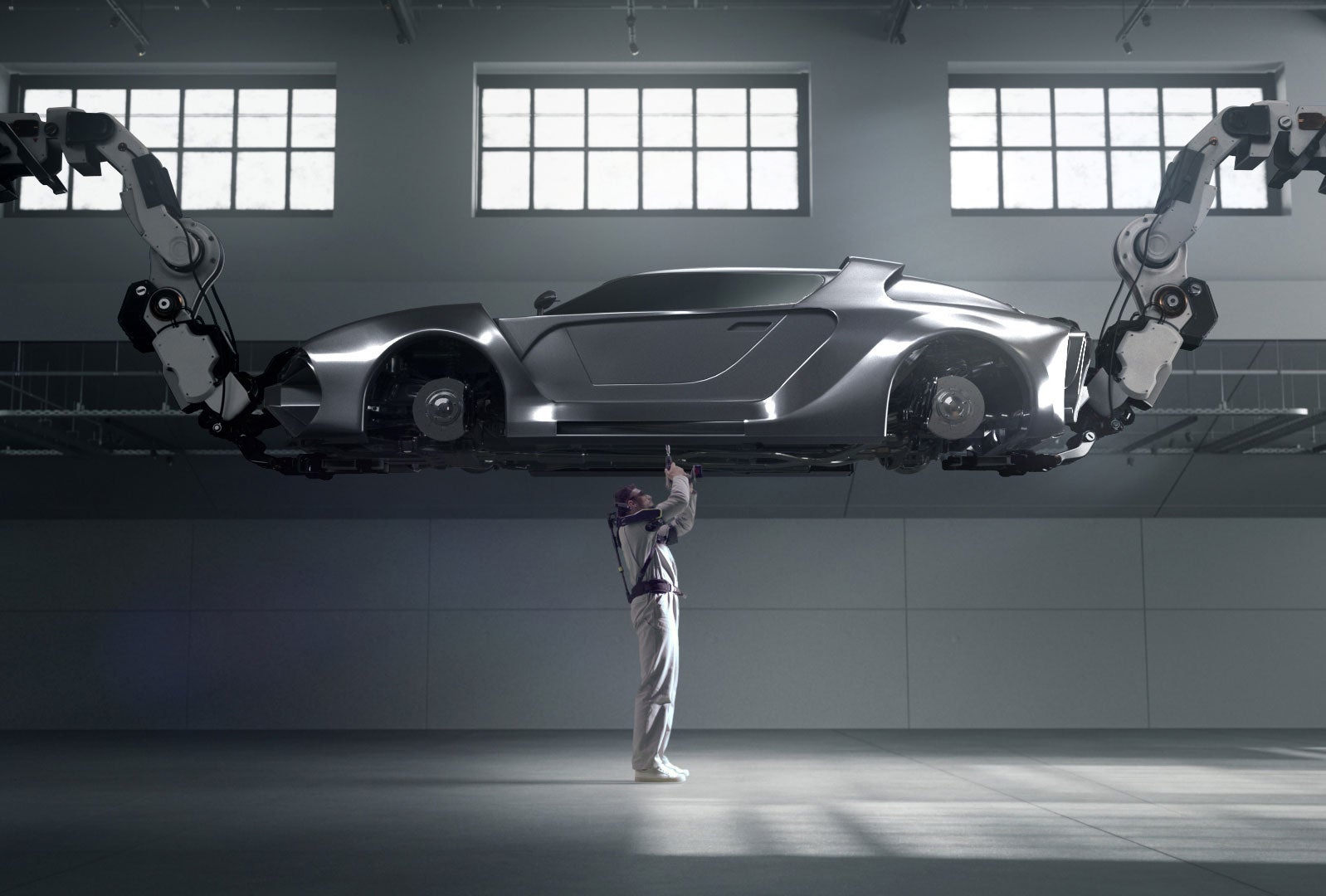
Hyundai Motor Group has developed an industrial exoskeleton that functions as a wearable robot to improve the comfort and safety of its factory workers.
Known as the Vest EXoskeleton (VEX), it is designed for industrial workers who are working in overhead environments, such as fitting parts to the underside of vehicles.
Worn like a backpack, it is designed to imitate to movement of human joints in order to reduce the amount human muscles have to work and so increase the rate at which employees can perform while cutting fatigue levels.
While it is technically a robot, the industrial exoskeleton also requires no battery to function, instead using multi-link muscular assistance and numerous pivot points to function.
It also features six different degrees of force, which can be adjusted as needed based on task and the wearer’s own strength, up to 5.5 kilogram-force (kgf).
Industrial exoskeleton enhances human workers
The industrial exoskeleton is by no means the first developed for such applications, but is part of an increasing trend to use wearables to augment manual work where automation would be too complex or expensive to be workable.
How well do you really know your competitors?
Access the most comprehensive Company Profiles on the market, powered by GlobalData. Save hours of research. Gain competitive edge.

Thank you!
Your download email will arrive shortly
Not ready to buy yet? Download a free sample
We are confident about the unique quality of our Company Profiles. However, we want you to make the most beneficial decision for your business, so we offer a free sample that you can download by submitting the below form
By GlobalDataHowever, Hyundai says that VEX weighs between 22 and 42% less than existing similar industrial exoskeletons, suggesting it could be a superior choice for long periods.
It also can be adjusted length-wise by up to 18cm, enabling it to work for a variety of body types.
“VEX gives workers greater load support, mobility, and adaptability when operating in overhead environments,” said DongJin Hyun, head of Robotics team of Hyundai Motor Group.
“Workers will also appreciate how light VEX is to wear and work with.”
The industrial exoskeleton has already been trialled at two Hyundai Motor Group plants in the US, where productivity boosts were reported.
The company is now preparing for commercial production, which will begin in December, and expects to retail the exoskeleton at around $3,500. Hyundai will also explore implementing VEX in its plants around the world.
Read more: Exoskeletons give lower limb paralysis sufferers the power to walk



